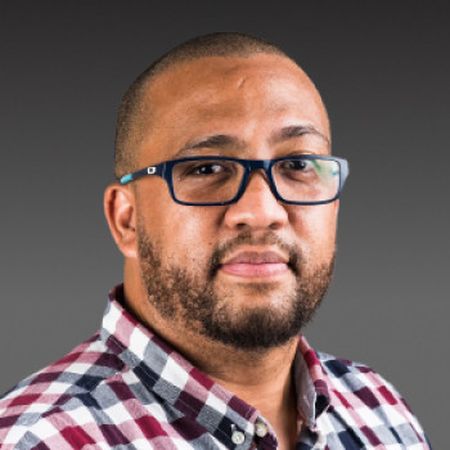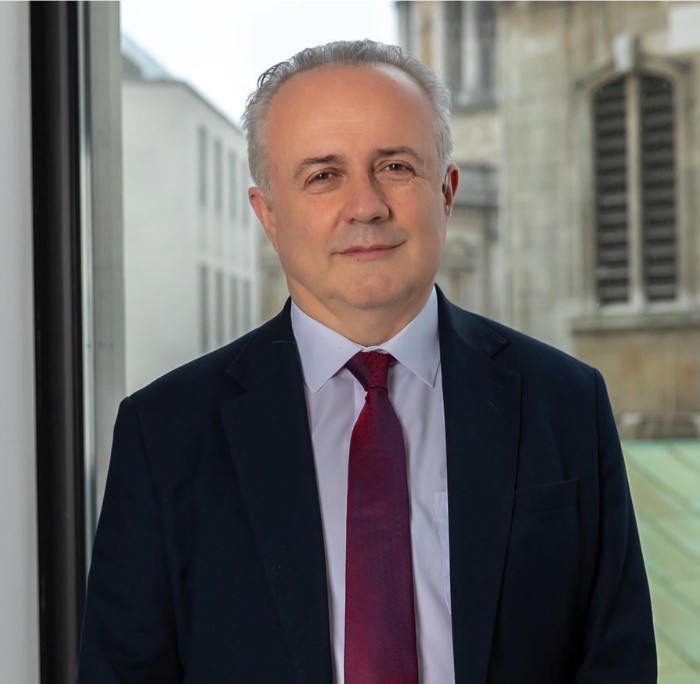The previous Frontiers of Asset Recovery Conference was held at the Oyster Box in Umhlanga. The fact that the 2025 edition was at the Mount Nelson shows the organisers are quite wedded to that old money charm.
Fraud, unfortunately, we heard at the conference, confounds asset recovery experts the world over.
That was perhaps the most valuable lesson from a full schedule of presentations, panel discussions and the kind of networking that happens over miniature pastries: South Africa’s struggles with State Capture and financial misconduct are not exceptional. We’re fighting the same battle as everyone else, just with our own particular scars.
It’s not the laws, it’s the fraud
“The headwinds facing the rule of law and criminal justice, I think, are the strongest they’ve been in decades,” explained Anton du Plessis, deputy director of public prosecutions for the National Prosecuting Authority. The bar, he warned, would keep rising because criminals would keep innovating.
It’s almost heartwarming that a room full of advocates, prosecutors and asset recovery specialists were all trying to figure out how to catch up to fraud networks that move faster than our court systems can keep pace.
One theme emerged repeatedly, sometimes explicitly, sometimes hovering unspoken between the lines: South Africa doesn’t need more legislation. We have the Prevention of Organised Crime Act (Poca). We have strong laws on paper. What we lack is the political will, the resources and the institutional capacity to use them effectively.
/file/dailymaverick/wp-content/uploads/2025/10/IMG_1036.jpg)
Judge Dennis Davis, former Judge President of the Competition Appeal Court, captured this frustration when he said “the fundamental problem is not necessarily the NPA and any other institutions. It’s the sheer magnitude of the corruption in South Africa at the moment. So overwhelming.”
We must get the money back first
Advocate Paul Pretorius (you may know him from the State Capture Commission) reminded the audience that convictions in South Africa, as in other common law systems, come “at the end of the process, not at the beginning” – the implication being that if we wait for criminal convictions to recover assets, we’ll be waiting forever while the money disappears into offshore accounts and shell companies.
This is where the shift toward civil asset recovery – Chapter six of Poca – and alternative dispute resolution becomes critical.
Asset recovery lawyer and ICC FraudNet member Anthony (Tony) Riem explained the strategy with the kind of practical wisdom that comes from decades in the trenches: “You are always looking for leverage to do a deal. And that, if I may, that’s why a freezing order is a starting gun because it gives you the ability to squeeze the fraudster in various directions”.
It’s not about justice in the moral sense. It’s about recovering the money before it’s gone.
The real danger of AI
In a discussion with Riem over coffee, he told Daily Maverick that AI is flattening the hierarchy pyramid in the legal profession (where an army of associates support the superstar prosecutors), but he fears that this instantaneous research could be compromising strategic thinking that is usually honed over years of interacting with cases.
The greylisting gorilla
The urgency of getting South Africa’s institutions working effectively is about our international standing – and our economy.
Our country was placed on the Financial Action Task Force (FATF) greylist in February 2023, not because our anti-money laundering laws are weak, but because we’ve failed to demonstrate their effective implementation. As director for financial crime compliance at nCino KYC Africa, Hawken McEwan, explained in a recent blog, the FATF “was asking for evidence that our existing laws were being enforced effectively”.
The economic cost of remaining on the list is steep: increased costs for international business, reduced foreign investment and significant reputational damage. South Africa’s GDP could contract by up to 3% over the long term if we don’t get off the list.
But there’s good news. Advocate Chuma Mtengwane, special director of public prosecutions told the conference the Asset Forfeiture Unit has achieved satisfactory results in the asset recovery criteria required by the FATF, with evaluations confirming South Africa “demonstrated that it can use (Poca) in corruption cases without encountering excessive evidential challenges”.
/file/dailymaverick/wp-content/uploads/2025/10/IMG_1224.jpg)
Du Plessis delivered what felt like the most hopeful line of the conference: the country is “about to be taken off the FATF greylist on 27 October”, a success achieved through “a huge amount of innovation and public-private partnership”.
How a heist bankrolled the Wolf of Wall Street
If you want to understand how private sector institutions can enable grand corruption, the 1Malaysia Development Berhad scandal is a masterclass.
The 1MDB fund was established in 2009 as a sovereign wealth fund meant to drive economic development for Malaysia. Instead, it became what ICC FraudNet member Steve Baker described as a “personal slush fund for a small cabal of conspirators”, with then-Prime Minister Najib Razak wielding sole authority over investments.
Victoria Ting, a Singapore-based expert on FATF compliance and associate director at Setia, pointed to the role of Goldman Sachs in the scandal. The investment bank managed $6.5-billion in bond deals for 1MDB, collecting fees estimated at $600-million – significantly higher than the typical rate. “Premier financial institutions like Goldman Sachs prioritised exorbitant fees over fundamental due diligence, becoming active participants in the fraud,” she said.
Design by Lindsey Schutters
The 1MDB case is a warning for South Africa. We’re in the process of establishing our own sovereign wealth funds. If we don’t build in robust oversight and accountability from the start, we’ll create the same opportunities for kleptocracy.
The takeout
Throughout the conference, there was a strange mix of pessimism and hope.
The pessimism comes from the scale of the challenge. Criminals innovate faster than the law. The corruption is overwhelming. The justice system is slow. Political will is inconsistent.
But the hope comes from something simpler: we’re not alone in this fight, and we already have most of the tools we need. The question is whether we have the courage and commitment to use them.
South Africa doesn’t need a revolution in its legal framework. It needs prosecutors who are properly resourced, investigators who can follow the money across borders and political leaders who won’t interfere when the asset recovery trail leads somewhere uncomfortable. DM





 Founding member and former chairman of the Commercial Fraud Lawyers' Association Anthony Riem. (Photo: PCB Byrne website)
Founding member and former chairman of the Commercial Fraud Lawyers' Association Anthony Riem. (Photo: PCB Byrne website)